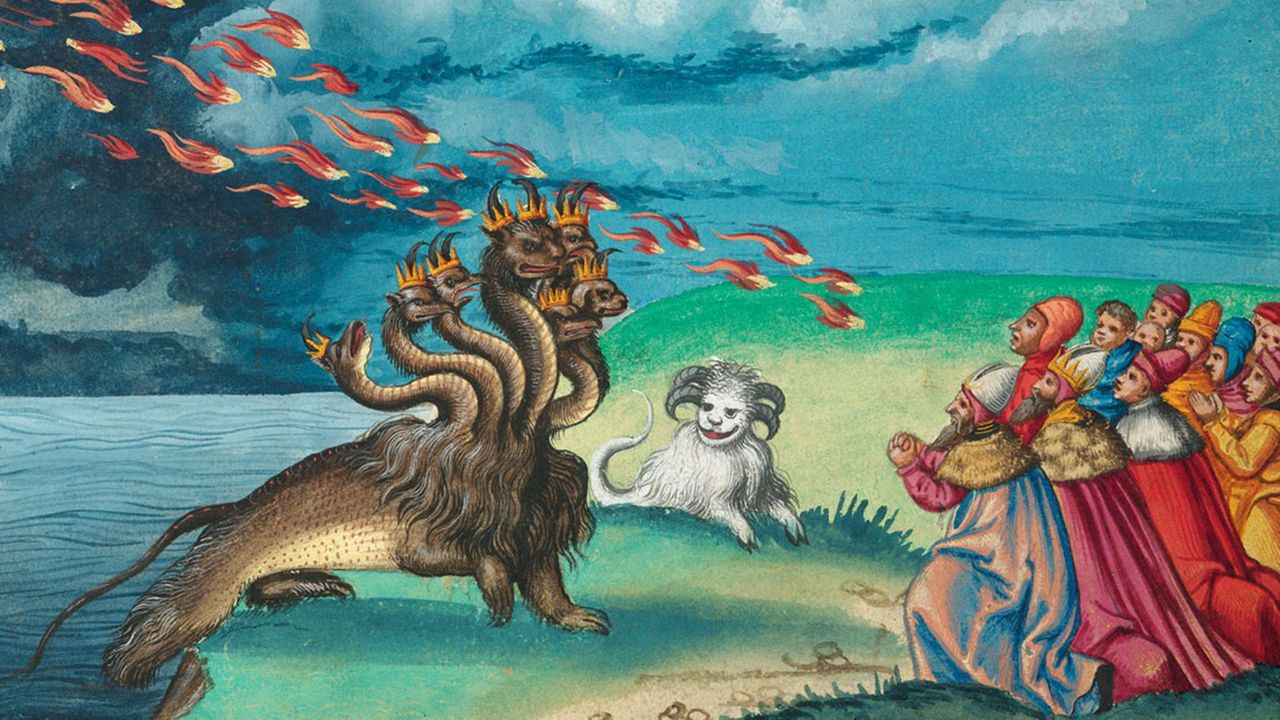
Daniel – Visions of Apocalyptic Madness
Daniel is a 2nd century BCE book written about events from the 6th century BCE. Ostensibly, it is a published diary of the visions and actions of a Jewish noble, Daniel, in exile in Babylon, portraying “the end times”, with a message of hope that God will intervene to save the Jewish people in their current oppression, just as they did in his time.
- While the dates given are off from actual events by about a decade, this is a novelization. It’s the time of the sacking of Jerusalem, and Nebuchadnezzar, prior to packing the Jews off to Babylon, selects out four Jewish teens of noble class, who are handsome, fit, and smart, to be educated and enter his personal service (wink, wink?). They agree to housing and education, but elect to avoid the fare of the king’s table, which likely included pork, and subsist on a vegetarian diet. They thrive, they learn, they become the king’s trusted advisors, giving better advice than the entire cadre of astrologers, soothsayers, and wizards that were already in the king’s employ. Might be because they dealt in reality rather than magic thinking.
- Nebuchadnezzar has a wild dream, and he’s sure it means something. He calls his advisors and demands that they tell him its meaning. They ask for details, he replies that if they were truly in touch with the spirit world as they claim, they’d know his dream and be able to interpret it. They protest, he orders all of them killed, including Daniel and friends. Daniel has a dream that night, and guessing it might be the same as the king’s asks for an audience. He relates a dream of a giant statue, blah, blah, blah, and interprets it as the future story of the kingdom and the kings to come afterwards. The king, surprised, acknowledges that the dream is the same. Daniel says, hey, it wasn’t me, it was God. Nebuchadnezzar realizes he’s been wrong about the God of the Jews and puts Daniel in charge of the various mystics and advisors.
- Nebuchadnezzar (I’m getting tired of typing his name out) has a golden statue built to match the one in his dream and orders everyone in the kingdom to come and bow down to it and worship him and his own god. Those who don’t do so are thrown into a furnace and burned to death. It is reported to him that three leaders of the Jews have refused to do so, and when he questions them, they defy him in the name of God. He has them bound, the furnace heated to “seven times its normal heat”, and has them thrown in. The furnace is so hot that the men who took them there are burned to death simply by being close. But the three, and a glowing fourth figure, are seen wandering about in the flames and they emerge unscathed. Neb (can I call him Neb?) realizes he might be up against something here, and orders that the Jews aren’t to be castigated for worshiping their own god.
- Neb has another dream, this time of a glorious, giant tree, but it gets cut down, leaving only a stump, while in the background, a heavenly “Watcher” looks on. Daniel is once again called to interpret the dream, which he basically sums up as – King Neb is building an immense, powerful kingdom, which will flourish, but then soon he will find that he and it are crushed by the power of God, leaving behind just the core of its existence, to be rebuilt by someone else. Neb is not cool with this, but goes about his kingly business. A year later, Daniel’s prediction comes true, and we close the chapter with Neb recognizing the power of God versus his personal arrogance.
- Neb, apparently, has been put out to pasture – quite literally if the text is to be believed. His son, Belshazzar, now sits on the throne and is, visibly, a spoiled, rich brat, who thinks nothing of desecrating the sacred objects that his father looted from the Temple. In the midst of a feast, a giant shadowy hand appears and writes the words Mene, Mene, Tekel, Upharsin, on the palace wall. None of his advisors understand it. Daniel is brought, and after first praising Nebuchadnezzar for finally recognizing the power of God, and interprets the words to mean that God has recognized Belshazzar is off the rails in his debauchery and disrespect, and that his time is at an end. That night, someone (not identified) assassinates Belshazzar.